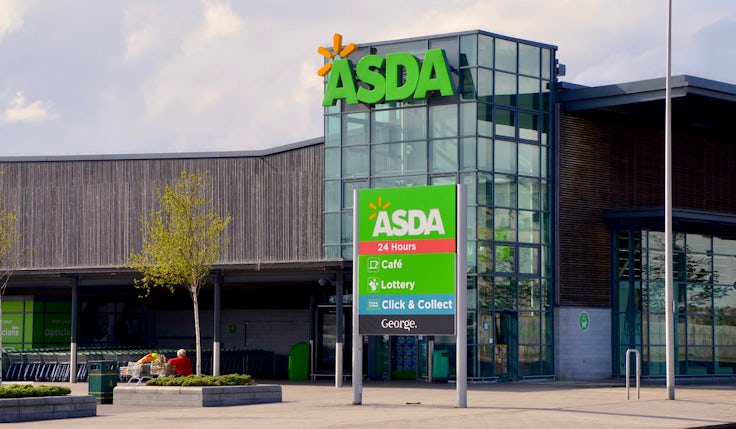‘Intense discounts’ fuel record £14.6bn festive grocery sales
More than a quarter of all FMCG sales were purchased on promotion over Christmas, as the UK grocery sector hit its highest level of promotions for three years.

UK grocery sales hit a record £14.6bn in sales over the three weeks leading up to Christmas, fuelled by the highest level of promotions for three years, according to NielsenIQ (NIQ) Total Till data.
Total till sales growth at UK supermarkets slowed to 3.2% in the four weeks ending 28 December 2024, down from 3.7% the previous month. However, after a slow start to the month, food sales led growth in the final three weeks leading up to Christmas.
Growth was fuelled by “intense discounts and increased promotional activity”. Over a quarter (27%) of all FMCG sales were purchased on promotion, 37% of this driven by brands over the four week period.
“[Promotional activity] has no doubt helped to boost purchasing over the Christmas period,” says NIQ UK head of retailer and business insight, Mike Watkins.
“In particular, this was led by Tesco and Sainsbury’s where promotional spending on FMCG increased to 35% and 34% respectively as these retailers engaged shoppers with big loyalty app savings.”
Tesco outperforms festive market as Sainsbury’s hits six-year high
In-store visits rose 8%, helping in-store sales to increase by 3.6% on this time last year. However, online sales fell 1.7%, causing the overall share of ecommerce sales to drop to 11.9% from 12.5% a year ago. The convenience channel also saw struggles in trading, notching up 2.4% growth. As reported by Aldi and Lidl, Monday 23 December was the peak shopping day.
Ocado was the fastest growing retailer over the past four weeks, generating 13.9% growth in sales compared to last year. Aldi and Lidl’s combined market share increased to 16.3%, up from 15.8% a year ago.
Earlier this week, Aldi reported £1.6bn turnover for the four weeks to Christmas Eve, marking its “best Christmas ever”. Lidl similarly generated record £1bn turnover over the same period, as its sales rose by 7% year-on-year.
According to the NIQ data, Tesco grew market share by 4.5% over the festive period, with Sainsbury’s (up 3.1%) holding market share. Both retailers saw strong increases in visits and new shoppers. Up 6.8% in sales, Marks & Spencer generated in its highest ever market share of 4.8%.
Rising food sales
Despite strong sales, the average basket value was £21.95, down 4.9% from last year. Sales for beers, wines and spirits fell flat, with sales weakening to 1.6% value growth and 1.3% unit growth.
Sales for stout rose by 13%, which NIQ attributes in part to pre-Christmas challenges around the draft supply of Guinness to pubs. There was a 20% boost in sales for sushi, 10% growth for olives, antipasti, nuts and fresh and frozen fruit, and a 12% increase for chilled bread.
Fresh produce also saw a 7.4% growth in sales, with bakery generating a 4.8% increase and soft drinks sales up 3.6%.
Confectionary saw 13% value growth and 5.5% unit growth, with value growth for meat, fish and poultry up 4.4% and unit growth rising by 2.1%
“Overall, it was a good Christmas for most food retailers with sales growths in line with the expectations that had been set in the last three months. The topline growths were helped by the return of low inflation, but also by shoppers being inclined to buy more in the final week leading up to Christmas Eve,” says Watkins.
“However, shoppers still had to spend more money this year on household bills before buying Christmas indulgences. Looking ahead to 2025, we expect shoppers to keep managing their budgets by shopping smart and shopping around for wherever the savings are the most attractive.”
Kantar data released yesterday (7 January), found the average household made nearly 17 separate shopping trips in December, making it the busiest month for retailers since the pre-lockdown rush in March 2020.
According to Kantar’s analysis, take-home sales rose by 2.1% over the four weeks to 29 December compared to last year, as household spending hit a record average high of £460.
Tesco saw a 5% increase in sales, taking its market share to 28.5% versus 27.7% in 2023 according to Kantar – the biggest share rise seen by any supermarket. Sainsbury’s achieved its highest share since December 2019 at 16% thanks to 3.5% sales growth, which outpaced the market.






